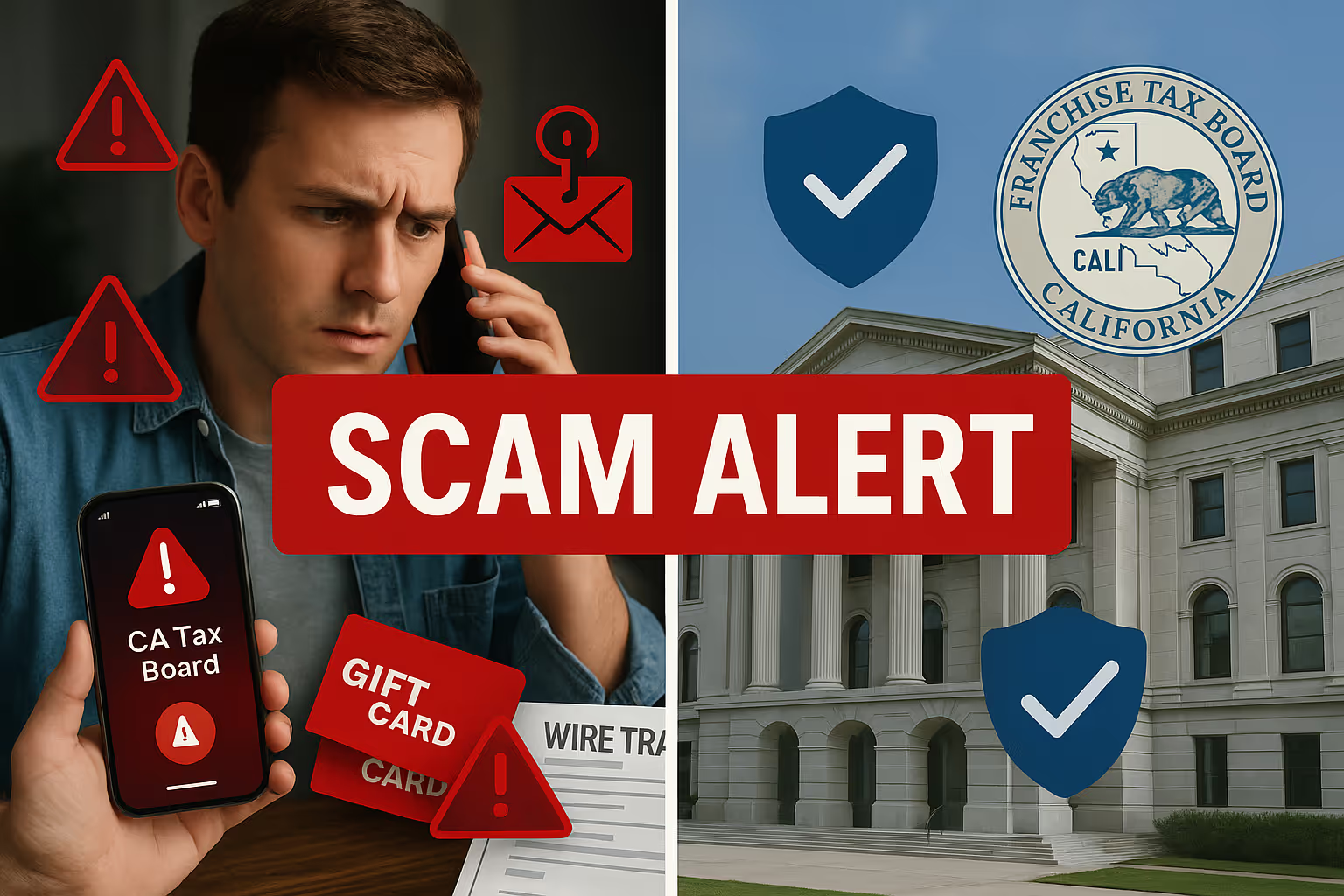
The California Franchise Tax Board (FTB) alerts residents about a surge in fraudulent phone calls. Scammers impersonate tax officials, demand immediate payment, and threaten arrest, deportation, or license suspension. Officials emphasize that legitimate Franchise Tax Board representatives never request prepaid cards, gift cards, or sensitive business account information over the phone.
Scammers across California pose as Franchise Tax Board agents, demanding immediate payment and threatening arrest, deportation, or license suspension. Victims describe being pressured into sending money via wire transfers, prepaid debit cards, or gift cards. These intimidation tactics are designed to make taxpayers comply quickly before they can verify the call.
The California Franchise Tax Board emphasizes that it does not accept gift cards, prepaid cards, or similar payment methods. Legitimate representatives first make contact through mailed notices and never pressure taxpayers into instant action.
Beyond financial losses, these scams can expose victims’ income and banking information. Criminals often use stolen data to file fraudulent returns or steal refunds, creating long-term problems for taxpayers and small business owners who may later face disputes over fraudulent returns.
The California Franchise Tax Board is the state agency responsible for administering personal income tax and corporate tax programs. Together, these collections supply most of California’s general fund revenue. In addition, the board manages delinquent debt collection for other agencies, making it a frequent target for scammers who exploit its wide reach.
Fraudulent schemes are not new. Criminals have attempted to use stolen identities to file fraudulent returns and steal refunds, leaving taxpayers to untangle the damage. By impersonating a trusted state office, scammers increase the chances of tricking victims into providing personal information or parting with their money under pressure.
California officials have urged residents to be cautious when responding to unexpected tax-related calls.
“Unfortunately, FTB and other California agencies constantly battle bad actors attempting to steal your money,” said State Controller and FTB Chair Malia M. Cohen in a statement released by her office. “If you ever doubt the authenticity of a text, email, or phone call claiming to be from the FTB or IRS, contact the agency directly to verify.”
State tax officials cautioned residents that representatives do not ask for credit card details, account passwords, or prepaid gift cards. The agency noted that legitimate updates are provided only through its secure website and urged taxpayers to be alert to potential scams.
Cybersecurity experts note that scams often succeed because callers create a sense of urgency, convincing people to share information without pausing to confirm details. This manipulation, they warn, leaves taxpayers vulnerable to identity theft and fraudulent returns.
The California Franchise Tax Board urges residents not to share sensitive details online or over the phone. If you receive a suspicious call, hang up immediately and avoid providing personal information. Do not click links in texts or emails that appear to come from tax agencies, especially those disguised with “https” addresses.
Officials stress that scammers exploit trust in the Franchise Tax Board brand to trick people into sending money or exposing details that criminals later use to file fraudulent returns or steal refunds. These schemes not only cost victims their money but can also result in prolonged disputes over fraudulent returns and delayed refunds.
Taxpayers can find complete guidance on recognizing and reporting scams through the official Franchise Tax Board website. The FTB maintains a dedicated scam alerts page with updates on current schemes and verification tools to ensure taxpayers interact only with legitimate communications.
Residents who believe they’ve been targeted should promptly contact the FTB or the IRS. Quick reporting helps protect individuals, safeguard business and personal accounts, and assist authorities in tracking fraudulent activity across California.
By William Mc Lee, Editor-in-Chief & Tax Expert—Get Tax Relief Now